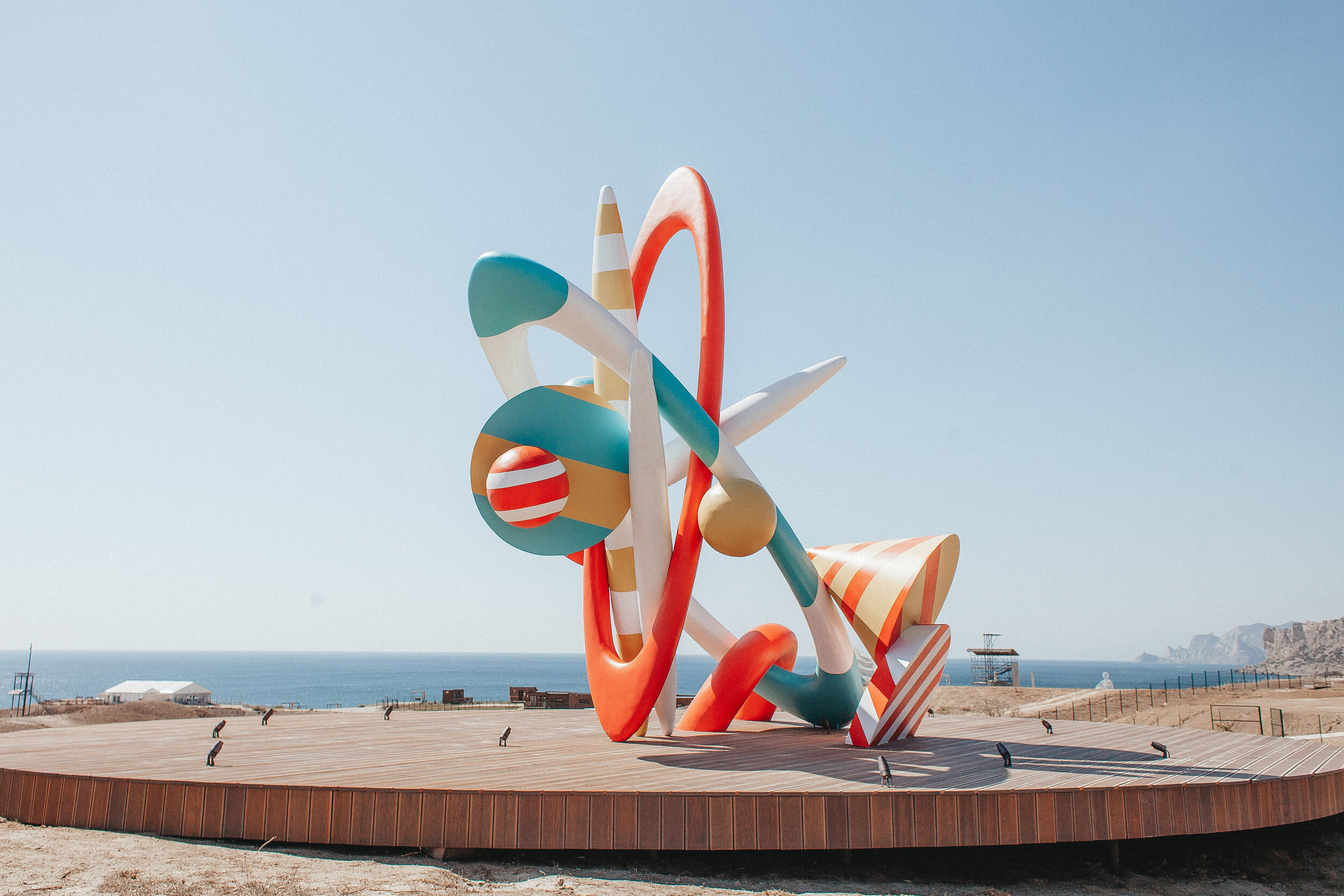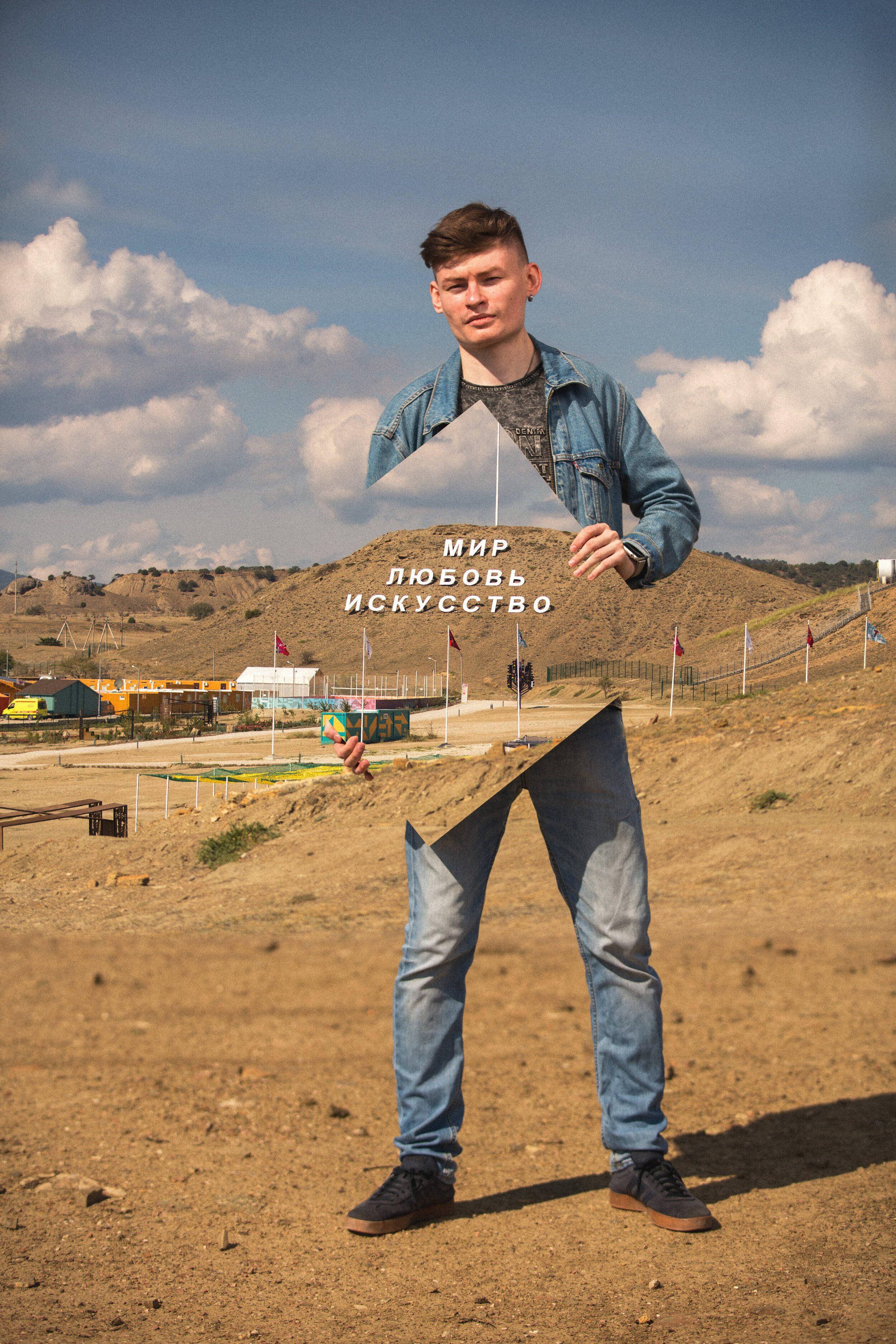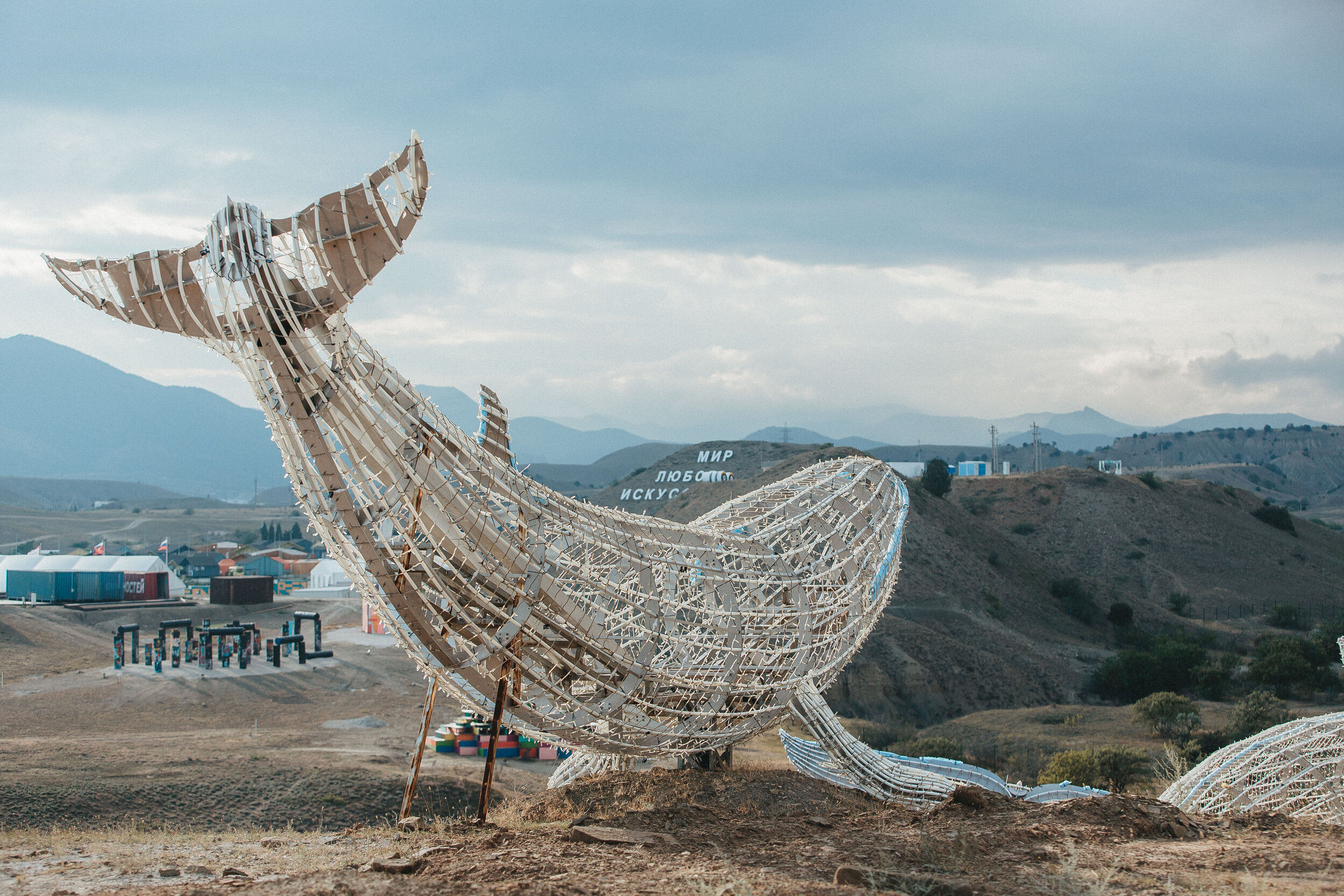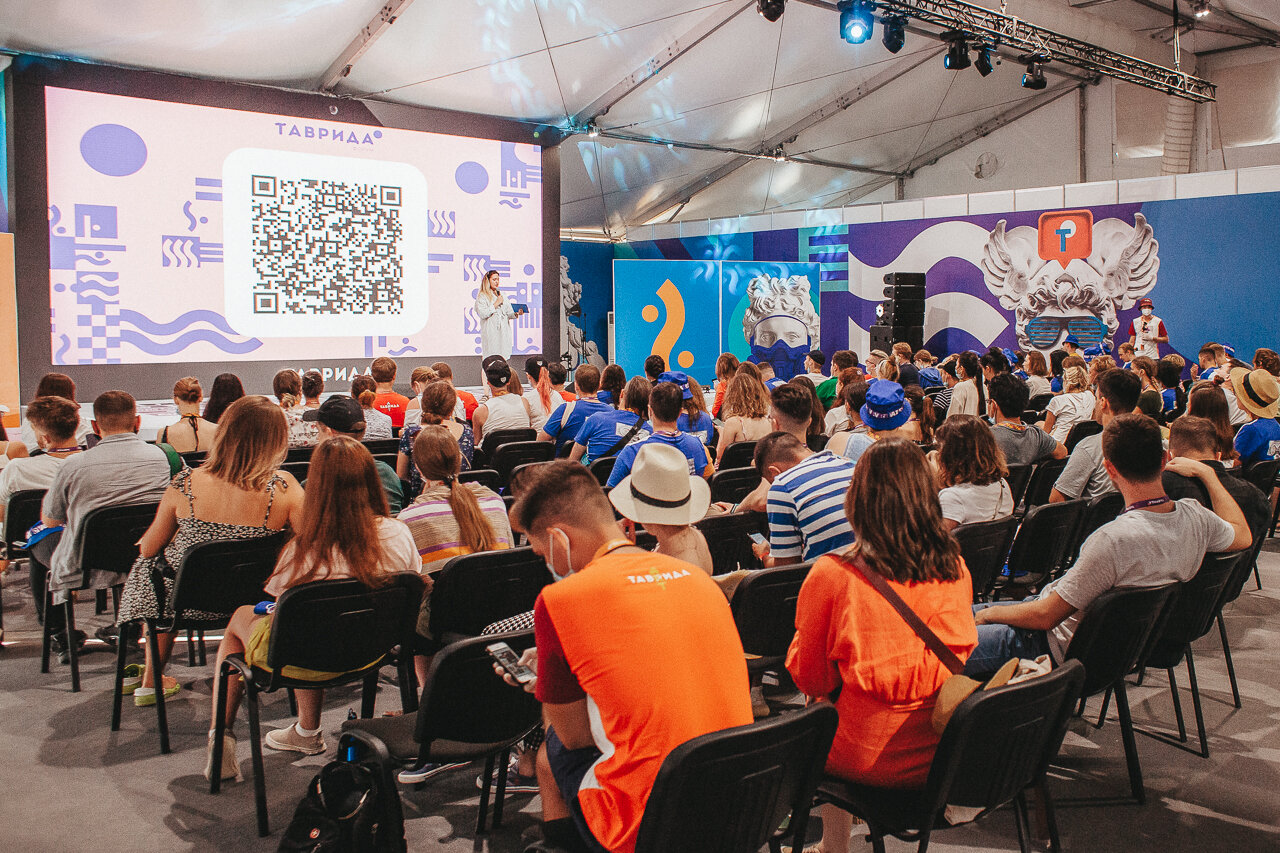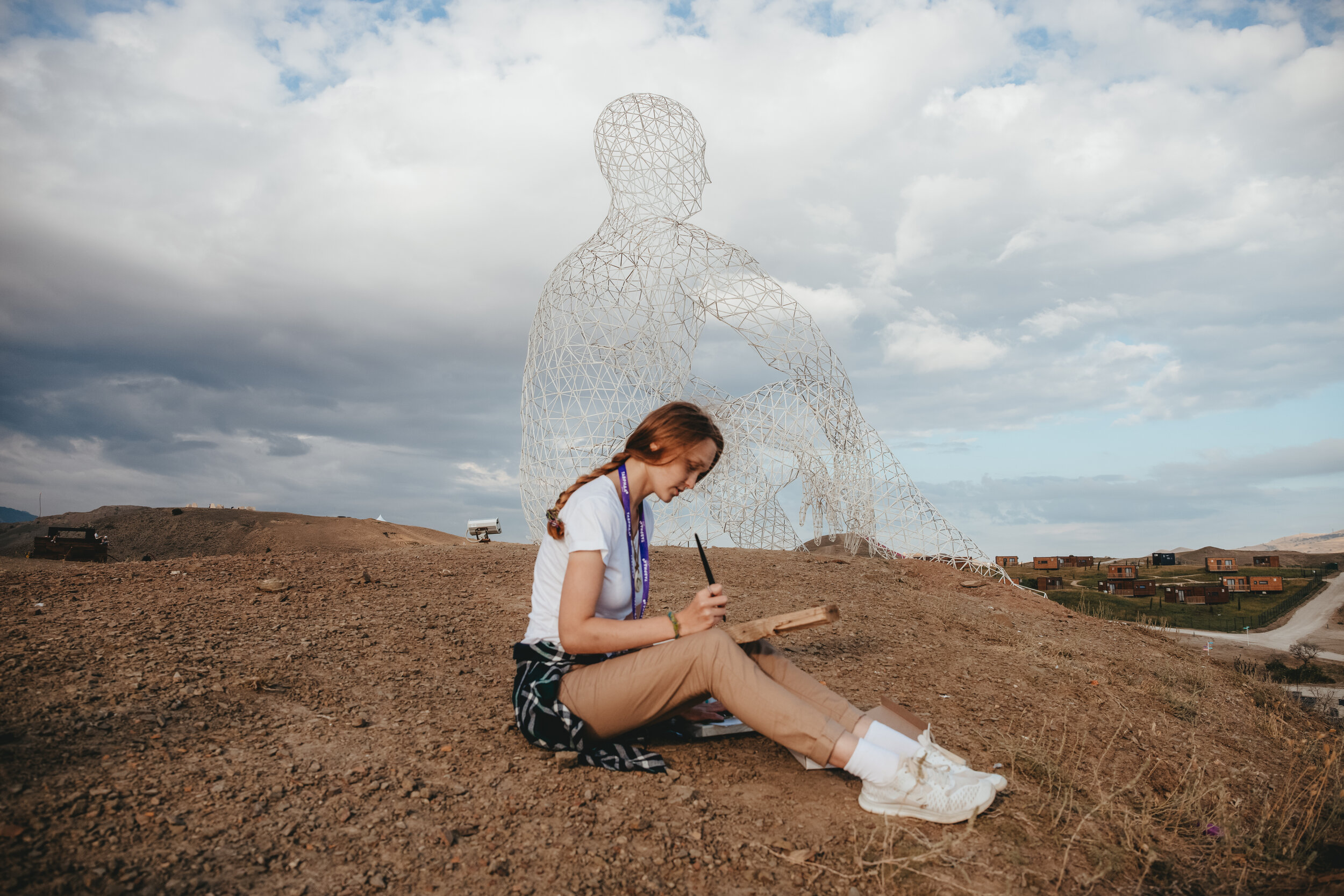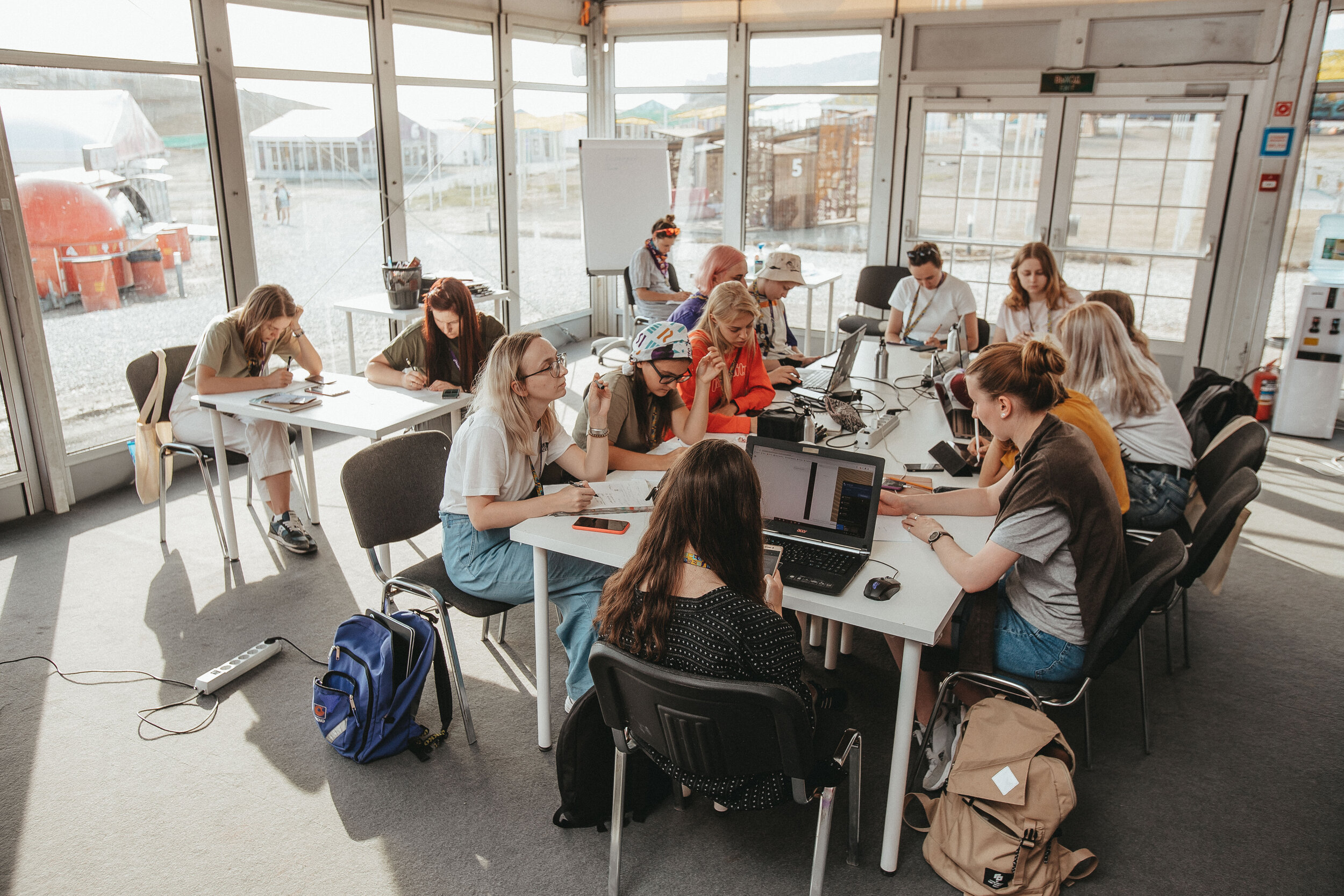About Tavrida, a unique hub for creative communities
This year we decided to widen our Russian horizons and cover creative initiatives all around the country. As many ArtyGeneration community members took part in Tavrida Summer Art School, we headed South to discover this state initiative. To better understand the actions of the Forum and the Festival, we had the chance to interview Sergey Pershin, Managing Director of Tavrida, the person who has been developing it from the beginning.
About Tavrida
Can you tell us about the story of «Tavrida»? How did it all begin? What is the mission?
First, it is important to say that I am not the author of the idea. Rather, I was invited to implement it, which initially emerged from the need to build professional communities of people representing the arts and creative industries. Passed years have left their mark on the project and on ourselves. Today we are sure that creative industries are one of the possible engines of the future economy. Therefore, we help creative people from all over Russia and beyond to develop their skills and projects.
Why was it decided to locate «Tavrida» in Crimea? What is the relationship between «Tavrida» and the territory?
I think that Crimea is a very suitable place, because it is very inspiring. And, of course, we would like to add an important meaning to this place, that a new Russian culture is being formed here. I would like to make Crimea not only loved by its beauty, but also make this place useful for young Russian creators. To create an eco-environment here where in 5-7 years new stars can emerge and shape Russian culture, on the national territory and abroad as well.
In which way are the forum and the festival a reference - or not - to the youth festivals of the Soviet Union?
As far as I know, there are no analogues of such a project in Russia, and I cannot remember somewhere else either. As response on the parallel, I recall the words from the movie "Internationale": "We will destroy the whole world of violence to the ground, and then / We will build ours, we will build a new world, whoever was nothing - he will become everything!" In my opinion, each cultural industry has its own background, which in itself influences the development of new forms. I am not sure how to answer your question. Culture and arts are an endless process in which one is overlaid by another or grows out of something. Taking inspiration from something in the West, we must understand that they, in return, were inspired, for example, by Diaghilev or Malevich. Each of them undoubtedly influenced the formation of a new European culture. Everything in this world is interconnected, so I cannot tell that what we are doing now originates only from the Soviet past or anything else.
It is interesting that you mentioned Diaghilev, whose ideas at some point ceased to be accepted in Russia, and he had to leave for the West. Now, with this project and some other initiatives, it seems that the state is supporting talented people to develop their new ideas.
Obviously, because the state understands that this is a story about the future. We understand today that only fruitful interaction between the corporate sector or state management (ministries, departments) with creators can provide effective solutions. Recently, I took part in a discussion about the Person of the Future and said that the person of the future is still a systemic person, but with creative potential. And the interlocutor answered me: “Will there be a man of the future? Maybe it's more like a team of the future." Because the dynamics, the number of tasks, the speed of reaction, the number of tools that should be used when visionaries such as people from the creative industries work with managers or representatives of technical professions will be the most successful. This is the cooperation of the future.
About the audience: have you seen an evolution in the audience that comes to the festival or attends the forum since 2015? Is there anything specific when working with millennials or an even younger generation? Do you think there is an active feeling of being a community?
As I mentioned earlier, we started by trying to bring the communities together. And all efforts were made around this idea - we made a forum "Tavrida" and at that time created 5-6 shifts in different directions. We rejoiced at the opportunity to unite these people for the first time. Today, the forum includes up to 15 different anti-schools in different areas of art and culture. The Forum has become like a big funnel through which we sift thousands of creative potentials and from them we can choose those who really deserve the opportunity to grow and realise their idea. And we help them in this. There is also a festival "Tavrida - ART" - a platform that unites all directions at once: music, visual arts, theater, literature, choreography, etc. The festival is a place of implementation, where we show the projects of our residents. Also an art park has appeared, which attracts ordinary vacationers and tourists.
The fourth element is an art residence, the construction of the first phase of which will be completed by the end of 2022. This is the place where we will be able to support the people who have passed through our "funnel" further, to implement with them some completely impossible projects. Impossible also in terms of time as well as one shift lasts only 6 days. In the future, we picture Tavrida to become an eco-environment to appear here in the broadest sense of the word, so that this place becomes overgrown with startups and activity. We want to offer a place where creators live, receive all services and can solve all their issues at once. It is important for a creative person to be surrounded by a certain set of competencies, in the absence of which the project will not receive proper development. Creators need an entrepreneurship mindset and management skills.
Do you plan to involve creators in commercial projects ? To become the actual bridge between art and business?
Yes, this is a component of an eco-environment. We are trying to be that bridge right now. Thanks to the experience of "Tavrida"- art residences appeared in 14 regions. We also train and form teams in the regions to develop it. The regional authorities are very involved and six more regions have joined the project this year. The process is already happening by itself. This year we even brought together these regional initiatives at one of the anti-schools.
You created the «anti-school» as an alternative to the usual studying process. What do you consider the most unique in such training ?
There is a certain paradigm for any Russian school graduate. We are outside this paradigm. Here we have spaces that inspire people. The sea and the sun certainly add some salt to this project. Communication between experts and participants is as close as possible. Not so long ago, I published a video in stories where Vladimir Korobka (a great vocal specialist in Russia) sits on the vastness of these hills and teaches a professional topic in an informal setting, with hints of philosophy. We touched the topic of education. Now alternatives to university education are actively developing. Online education is gaining a large audience.
In your opinion, how important is fundamental, classical education? When you select applicants for your anti-school, does the applicant's diploma matter?
We do not choose the participants ourselves. They are chosen by institutions that cooperate with us in each direction. But, of course, I think that the basics or, as it is also called, hard skills, are important. Of course, a creator must know history, master basic techniques, understand traditions, but at the same time he must look into the future and feel the moment in which we live. In this sense, our partners are guided not only by the applicant’s education, but also by the creative experience and achievements that the person has already achieved. And, of course, we all know examples of famous people in culture who were educated in a completely different field, like Anton Chekhov (who was a doctor).
How do you integrate ecological issues in your missions?
We don't even need to do anything here on purpose. The new generation that comes to us is very focused on these values. And even if we do something wrong somewhere or we have not foreseen environmental friendliness in certain processes, in relationships or in the use of some tools, they definitely correct us. Since we are open, we evolved a lot. For example, when we started the project, we used confetti and balloons at events. Now we have given up all this.
Are you open for collaboration with organisations from abroad?
Yes, we are open and we are permanently making such collaborations. Foreign colleagues participate in many of our projects, for which we are very grateful. For example, before the start of this season, we had an online conference "Art After". Foreign speakers also took part in it. Last year we had up to 30 foreign participants from different countries. Maybe we need to be more active in this direction, but we are working on it.
To follow Tavrida numerous initiatives, go check their website, Facebook and Instagram.
Editor’s note : ArtyGeneration is an apolitical platform with the aim of promoting the Russian creative scene and the people who are shaping it. Sharing their reality, projects and ideas contributes to spreading a better understanding beyond Russian borders and opening an intercultural dialogue. ArtyGeneration’s team has at its heart the desire to foster this dialogue.



